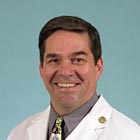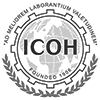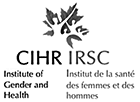Conference Program
Come hear internationally renowned researchers share their insights into work-related MSDs From practical pre-conference workshops to thought-provoking keynote addresses and leading-edge research presentations and posters, PREMUS 2016 promises to keep you up to date on the trends, innovations, successful interventions and emerging issues in the field of work-related MSD prevention. Click on the tabs above to learn more about pre-conference workshops and keynote speakers. Information on session presentations—including an at-a-glance schedule—will be coming soon. Final conference program is now availableThe final program for PREMUS 2016 is now available. The 110-page document includes everything you need to know to plan your conference: from the full list of presentations (and when and where they take place) to details on the conference venue and how to get there. The document is easy to navigate on desktops, laptops and mobile devices, with clickable links throughout that easily move you through the contents. For example, if you go to the Table of Contents on page 4 and click on Program, you will be taken to the opening of the Program section. To find information on posters, click on Poster Sessions. To go back to either the front of the Program section or the full Table of Contents, click on Program or PREMUS 2016, respectively, at the top of the page. Download the final program (PDF 6MB) Book of abstracts is now availableThe PREMUS 2016 book of abstracts is now available. Download the book of abstracts (PDF 8.3MB) Enrich your PREMUS 2016 learning with a pre-conference workshop As part of PREMUS 2016 programming, we are pleased to offer seven full- or half-day workshops. These workshops provide hands-on learning to expand your skills as a researcher or practitioner in the field of work-related musculoskeletal disorder (MSD) prevention. All pre-conference workshops take place on Sunday, June 19, the day before the conference officially begins. And all are held at the AllStream Centre, the conference venue. Please note that pre-conference workshops are not restricted to conference registrants. However, if space is limited, priority will be given to those also attending the conference. Also note that workshops that do not get a minimum of 10 registrants will not be held (and workshop registration fees will be refunded). The maximum number of registrants per workshop is 50.
In longitudinal studies of work-related health, independent variables such as work conditions are collected at the beginning of the study. They are used to estimate the relative contribution of these variables to the outcomes, such as sickness absence or disability. However, such an approach does not take into account the potential fluctuations over time of both independent variables (such as changes in work conditions) and health outcomes (especially related to episodic health conditions). This workshop will introduce participants to new analytical approaches that can be used when repeated observations over time are possible. The first uses methods for analyzing change that determine whether or not to adjust for baseline values of health outcomes. The second, a life-course approach, uses latent and pathway models to estimate trajectories over time. The third uses multi-state models to provide probabilities of transition between health states and to explain differences among individuals over the course of a disease. By the end of this workshop, participants will:
About the facilitators Alex Burdorf, PhD, is a professor in the Department of Public Health at the Erasmus University Medical Center. A trained occupational epidemiologist, his research interests include the cost-effectiveness of occupational health programs, musculoskeletal disorders (risk factors, prognosis, sickness absence, interventions and modelling), the aging workforce and sustainable employment, and methodological challenges to analyze dynamic patterns of determinants and diseases over time in longitudinal studies. He is a co-founder of the Center for Work-Related Musculoskeletal Disorders in The Netherlands. Allard van der Beek, PhD, is a professor of occupational epdiemiology, vice-head of the Department of Public and Occupational Health and co-director of the Musculoskeletal Health Research Program at the EMGO+ Institute, VU University Medical Center. Within occupational epidemiology, his main research topics include exposure assessments in ergonomics, the (cost-)effectiveness of interventions, etiology of work-related musculoskeletal disorders and work stress, and worksite health promotion. Although most of his intervention studies are randomized controlled trials, he is also interested in the methodological pros and cons of alternative research designs.
As the workforce ages, musculoskeletal disorders (MSDs) become a more prominent issue for workplaces. Older workers take longer to recover from MSDs and miss more work days after injury. Several social, psychological and cultural changes that accompany aging may also influence their ability to work. In this workshop, facilitators will highlight studies from a systematic literature review on aging and work, and present key issues in work disability among older workers. Presentations will inform a group discussion on the unique characteristics and needs of older workers with MSDs or at risk of developing MSDs. In the second half of the workshop, participants will apply “intervention mapping” to design a novel workplace intervention for older workers attempting to maintain productive work. This will be the foundation of a protocol for implementing (and, potentially, studying) an intervention in their own workplaces. By the end of this workshop, participants will:
About the facilitators Kim Cullen, PhD, is a research coordinator at the Institute for Work & Health, where her current research topics include understanding risk factors for injury and return to work, older workers and MSDs, and interventions to manage upper extremity musculoskeletal disorders. Doug Gross, PhD, is a professor in the Faculty of Rehabilitation Medicine at the University of Alberta. His research focuses on individuals with musculoskeletal conditions, including work disability prevention, clinical decision support tools, and the effectiveness of clinical and public health interventions. He is also the director of the Rehabilitation Research Centre (RRC) and the research director at the Glen Sather Sports Medicine Clinic. Ivan Steenstra, PhD, is the research facilitator at Ryerson University. Previously, he was an associate scientist at IWH, where his research interests focused on the epidemiology of return to work in musculoskeletal pain (with an emphasis on older workers), determining prognosis following low-back pain, and tailoring interventions to achieve a fast and safe return to work.
Understanding the drivers behind health-related behaviours has been a challenge for many decades, and a number of explanatory models have been developed. While the majority of behavioural studies fall within the field of health, more behavioural research in the field of occupational health and safety has been undertaken in recent times. Drawing on applied and fundamental research from psychology, this workshop will help participants understand the drivers of behaviour via different models. It will also help participants use this understanding to improve the success of their workplace interventions, including those designed to reduce the risk of musculoskeletal disorders (MSDs). By the end of this workshop, participants will:
About the facilitators Claire Williams, PhD, is a senior ergonomics and human factors specialist at Human Applications, and a visiting research fellow in Human Factors and Behaviour Change at the University of Derby. A chartered ergonomist and human factors specialist (C. ErgHF) with 20 years of experience in occupational health and safety, her current training, consultancy and research focus is on the behavioural aspects of health and safety. She is currently co-editing a book entitled Human Factors and Ergonomics in Practice. Nigel Heaton is a chartered ergonomist and human factors specialist (C. ErgHF) and a director at Human Applications. He provides training and consultancy worldwide, advising organizations on designing and implementing risk management systems for business, ergonomics, and health and safety.
In today’s complex market, commercializing research findings is often encouraged as a way to turn research findings into practical tools for use by the workplace parties and to fund future research. In this workshop, participants will learn a process for research commercialization, as well as the role research commercialization plays in acquiring additional research funding. The workshop will begin by exploring the differences and similarities among knowledge transfer, knowledge mobilization and research commercialization. Participants will then learn about a three-step process of research commercialization: research mobilization, which is about linking research with interested workplaces to get their input, intervention and/or evaluation; market mobilization, which involves partnering with product development professionals to turn research findings into solutions that are applicable and practical in the workplace; and commercialization, which includes identifying the best channel for introducing new products to the marketplace and tapping into business and marketing expertise. By the end of this workshop, participants will:
About the facilitators Glenn Cullen is the vice-president of corporate programs and product development at the Public Services Health and Safety Association (PSHSA). A senior executive with 25 years of progressive responsibility and experience in small, medium and large-sized organizations, his career encompasses both for-profit and not-for-profit experience in the public and private sectors. His expertise includes strategic planning, organizational design, finance, IM/IT, marketing, human resources, and business and product development. Kim Slade is director of product development at PSHSA. Certified through the Canadian Society for Training Development as a training development practitioner, she has over 15 years of experience as an instructional designer. She was a member of the Canadian Standards Association (CSA) Technical Committee on Health and Safety Training and also the co-principal investigator on an Institute for Work & Health study to develop pictograms to warn of ergonomic hazards in the food services sector. Slidecasts of all keynotes are now available. Click to view.

Sitting to death—or at least until we’re injured Dr. Jack Callaghan The health risks linked with prolonged sitting continue to be a hot topic in the media. But what do we know about prolonged sitting as an injury risk to the low back? As we demonize sitting in favour of standing, and as sit-stand stations become more common in workplaces, what do we know about the risk of low-back injury associated with prolonged standing? Is there an optimal amount of time workers should be sitting and standing to reduce their risk of low-back injury and improve their health? According to Dr. Jack Callaghan, a long-time researcher on the link between sitting and low-back pain, the answers to these questions lie in understanding the mechanisms of injury associated with low-back pain—how tissues in the back become injured and generate pain, and how the spine experiences loads in different activities. Join Callaghan in this topical keynote as he talks about his research program that seeks to understand how exposure to a variety of factors initiates and exacerbates low-back injury. Find out what he has learned about how to assess daily loading on the back and how to set workplace exposure limits to prevent low-back injuries, including limits for sitting and standing on the job—and the optimal mix between the two. 
Can using a sex/gender lens provide new insights into MSD mechanisms? Dr. Julie Côté Evidence shows that women are twice as likely as men to injure their neck or shoulder due to sustained, repetitive movements at work. Do sex (biological) and/or gender (psychosocial) differences account for this increased risk among women? For example, are the different ways men and women control movement, react to work exposures and respond to muscle fatigue responsible? Dr. Julie Côté will tackle these questions in this provocative keynote as she looks at the implications of applying a “sex” or “gender” lens to the research into the mechanisms of work-related MSDs. Learn about her work that aims to develop better understanding of sex- and gender-sensitive mechanisms for identifying MSDs of the neck and shoulder. Find out why this work is improving our understanding of the intervention strategies needed to make a difference and, in turn, leading to the creation of more effective programs to prevent the development of neck and shoulder injuries in both men and women. 
NIOSH Upper Limb Consortium Studies: What did we learn about carpal tunnel syndrome, and what should we do next? Dr. Bradley Evanoff Most studies of upper extremity musculoskeletal disorders (MSDs) among workers are limited by small sample sizes or restricted to a small subset of jobs. To overcome this, six U.S. research centres pooled data from their prospective studies of musculoskeletal outcomes, in what’s known as the Upper Limb Musculoskeletal Disorder Consortium. The consortium is a collaborative research program initiated by the U.S. National Institute for Occupational Safety and Health (NIOSH) in 2000. In this important keynote, Dr. Bradley Evanoff will share what the consortium has learned about the risk factors for carpal tunnel syndrome. Following 4,300 workers from more than 50 workplaces for at least three years, the consortium’s pooled data make it the largest study of carpal tunnel syndrome to date. Learn what we now know about the risk factors for carpal tunnel syndrome and what they mean for the future prevention of this painful condition among workers. 
Making a positive difference in construction safety and health by improving safety culture, safety climate and safety leadership Dr. Linda Goldenhar You might not expect to be talking about safety climate, safety culture and safety leadership when you’re developing a workplace or research program into preventing musculoskeletal disorders in the construction sector. But the link between the two is much greater than you might think, argues Dr. Linda Goldenhar. In this engaging keynote, Goldenhar will talk about the research that led her and her team to develop a safety climate leading indicator workbook and measurement tool that contractors, safety and health professionals and others could implement to reduce MSDs and other work-related injuries in the construction sector and beyond. |











